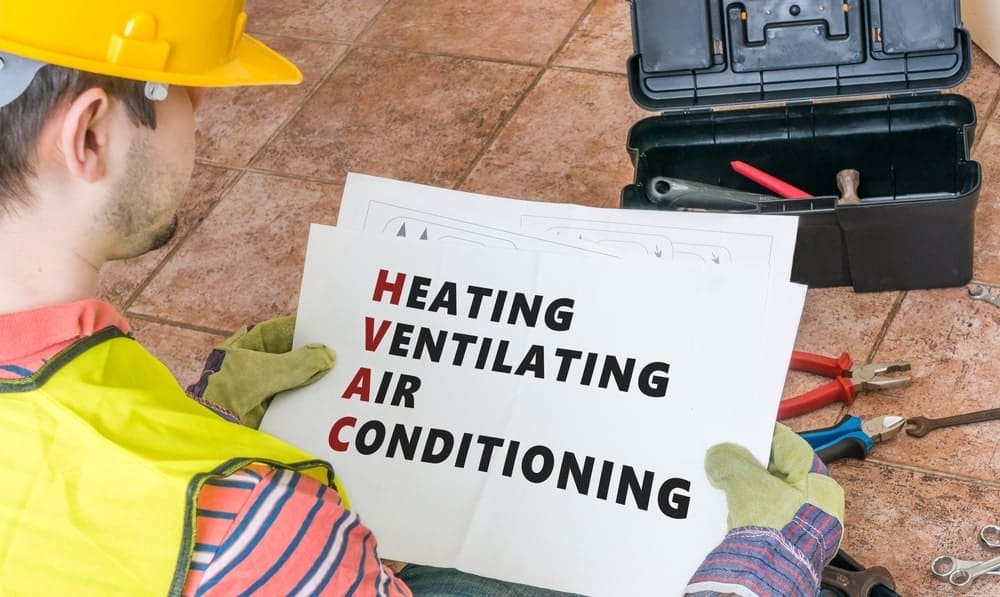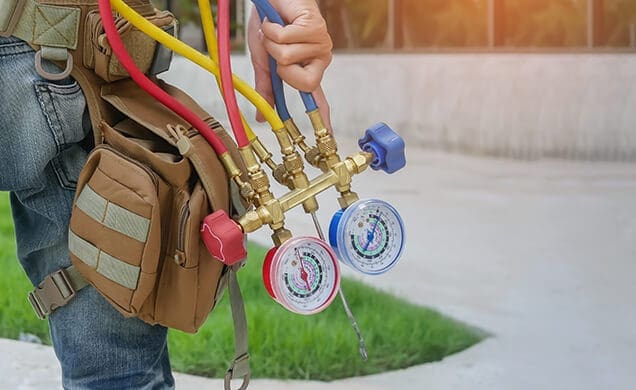You will need to take a series of specialized HVAC courses when you are training to become an HVAC technician. HVAC courses and HVAC education programs are now available in both online and offline formats, and cover all of the basics about heating, air conditioning, ventilation and refrigerant systems.
HVAC training programs typically run about two years in length and lead to an associate’s degree program and certification in the field. Most HVAC education programs prepare students for their certification and licensing exam. Exam requirements vary from state to state, so you will need to know how many HVAC courses you need before you enroll in an HVAC training program.

HVAC Education Programs
HVAC courses and HVAC education programs are designed to train students in the proper safety practices, procedures and industry standards of HVAC and HVACR systems. They learn how to install, design, troubleshoot and service different types of HVAC systems and machines, and also gain advanced skills in the area of refrigerant handling. Many HVAC education programs focus on fossil fuel combustion systems for residential buildings and commercial buildings, and give students a chance to take both classroom-based and hands-on HVAC courses throughout their educational career.
Prerequisites for completing an HVAC education program include having a high school diploma or a GED, and being at least 18 years of age. Many students choose to complete their HVAC education at a vocational college or trade school immediately after graduation from high school. Students may choose to complete an internship or an apprenticeship to supplement their HVAC education program, and gain valuable work experience in their field.
Types of HVAC Courses
Examples of different types of HVAC courses offered by accredited HVAC training centers and schools include:
- Fundamentals of Commercial HVAC
- Pneumatic Controls
- Energy Fundamentals
- Energy Awareness for Commercial Buildings
- Personal Safety

- Basic and Parallel Circuits
- Magnetism and Electrical Applications
- Wiring and Schematic Reading
- Basic Electric Motor Theory
- Application of Electric Motors
- Introduction to Psychometrics
- Airflow Measurement Methods and Calculations
- Basic Refrigeration Cycle Physics
- Expansion and Metering Devices
- Compressor Accessories and Applications
- Characteristics of Fuel Oil Principles of Combustion
- Complete Heating Systems

- Fuel Gas Composition
- Boiler Fundamentals
- Hydronics
- Heat Pumps
- Building and HVAC Systems
- Introduction to Heat Loads
Taking an HVAC Course Online
If you can’t find a suitable HVAC education program at a vocational school or HVAC training school in your area, you might be able to take an HVAC course online. Many accredited schools now offer online HVAC courses and training programs where students learn through online videos, tutorials, web-based lectures and complete online assignments. Students may still need to complete hands-on training at a dedicated facility or approved training center, but will be able to take the bulk of their HVAC education requirements completely online.
Taking an HVAC course online can make it easier to manage a busy schedule and also gives you more flexibility. You may have the option to take only one HVAC course online and the remainder on a campus, or most of your HVAC courses in on online format.
